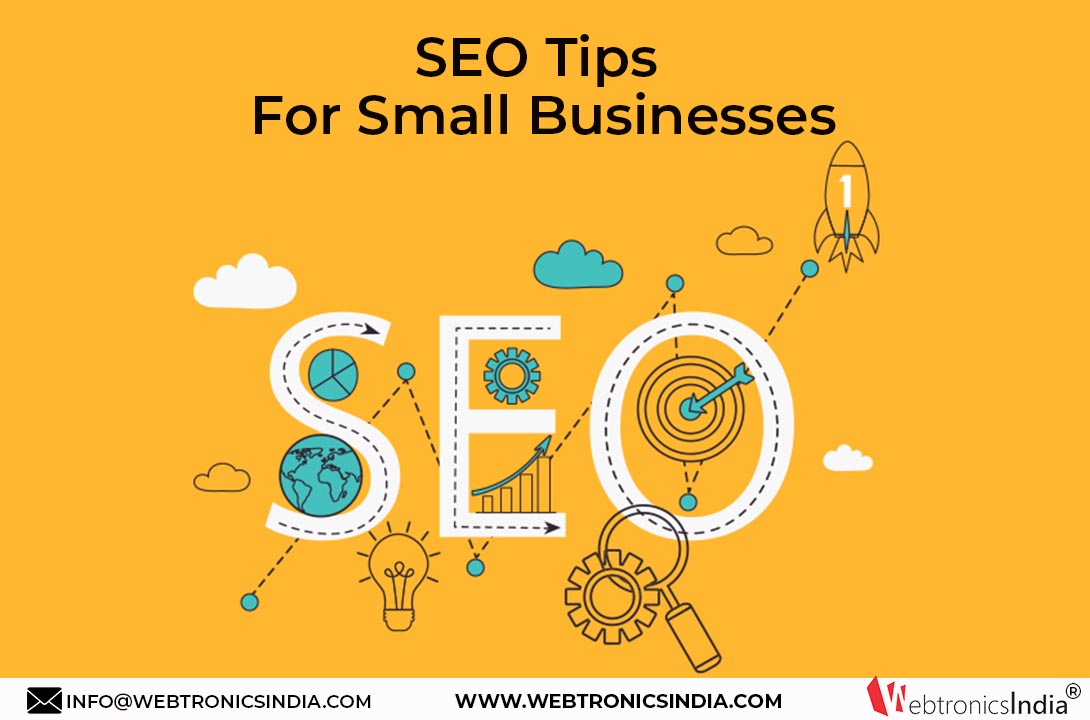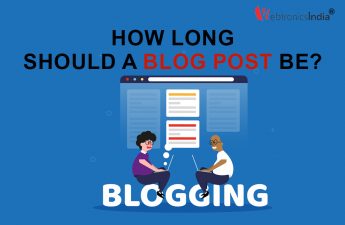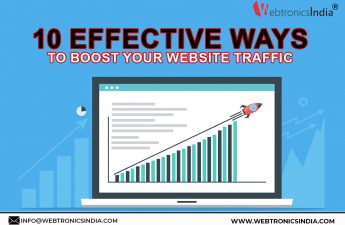There is no point in building a big website if your potential users are unable to find it. But how to make sure that your website stands tall in the sea of the content on the web? SEO or Search Engine Optimization is how you help users find your website on search engines like Google, Yahoo, etc. By picking the right keywords and building the site efficiently, you can drive traffic to your website and generate more sales.
Following are the SEO tips for small businesses to rank higher on the search engine result page:
1. Identify the Right Keywords –
Create a list of the words your clients are likely to use when they are looking for your products or services. Google Keyword Planner is a good tool to generate ideas for keywords and check their competition respectively. Pick the keyword that is a good combination of high volume and low competition. You can also use ‘Google Search’ and check your competition to get relevant keywords.
Ensure that your keywords are present in each of your website pages so when the client searches for your product on the search engine, your page will rank higher. You can do this by adding the keywords in the URL, titles as well as in metadata.
2. Good Page Structure –
Finding the keywords and placing them between sentences is not enough for generating quality traffic. The page should cover product or service details, unique selling points, benefits offered as well as the questions asked by the customers and their answers. A good page structure helps retain traffic.
3. Write for your Customer –
Many online businesses fail as they write for the search engine and ignore their audience. Ensure that your content is for your customers as they are going to give you sales. Cramming keywords only to gain the attention of search engines will reduce your rankings and will harm your reputation in front of your target audience. Let’s not forget the penalties that come with it. Give your customer a reason to stay on your webpage.
4. Use Clean URLs –
The URL of your webpage must contain the main keyword that defines your product or service.
5. Google Local Listing –
Google listing is an easy but effective way to improve your presence in the local search results.
6. Effective Link Building –
The more relevant links pointing to your website, the easier it will be to rank on searches. Make sure that all the links pointing towards your site are of high quality. One link from a high-value site is way more valuable than the dozen low-quality links.
7. User-Friendly Website –
Create a navigable and clean website. Use appropriate headings for better readability and insert the right keywords into them.
8. Page Speed
Site speed is one of the important factors for SEO. A slow website will disappoint your target audience and will hurt your rankings. You can use Page Speed Insights to check the speed of your web pages.
9. Mobile-Friendly Website –
The online user base is using mobile more than computers or laptops. Therefore, it is essential to make sure that your site is mobile-friendly. Search engines like Google are adding labels and texts to the search results to point out the mobile-friendly sites. Test your website using Google Mobile-Friendly Tool.
10. Analyze your Competition –
Check the On-page and off-page activity of your competitor websites that are ranking on the 1st page of the search engine result page. This will give an idea of the type of content that is getting appreciated by your customers and search engines.
11. Performance Analysis –
You can analyze the performance of your website using a free tool like Google Analytics and Google Search Console. They provide details about the SEO performance of the website like how many visitors came to your site, what pages they viewed, top keywords, the geographical location of your users, and how long they stayed on your page. You can also use low-cost tools like Semrush, MOZ, etc.
12. Use ‘Site Search’ data for target keywords –
The words used by the users on your site search feature can help you identify the target keywords for your website. The users might be using the same keywords on search engines.
13. User Reviews –
Encourage your clients to drop a review if they are satisfied with your service. Reviews help in improving conversions and are valuable for SEO.
14. Create a Blog –
It is not possible to use all the keywords related to the product or service on the web page as it can lead to keyword stuffing. But you can use these keywords in your blogs to bring traffic. Write a blog to touch the pain points of your customers and offer your product as an effective solution. This will help you provide relevant and frequently updated content to the search engines.
15. Use the Power of Social Media –
Social Media has turned out to be a blessing for small businesses. A lot of start-ups are using Instagram to create reels related to their products/ services and are getting tremendous responses. You should create a profile on relevant platforms providing all details ( contact and address ) of your business. With time, you will understand what works best for you.
16. Keep a track of the Methods adopted by the agency –
In the past, certain agencies were successful in delivering quick results via aggressive link building. This may work in the short term but it can come under the scanner of search engines resulting in huge penalties. If you find out that your website is getting a lot of similar links from a low-quality forum, then it is a matter of concern.
17. Use Schema Markup –
It is added to the page code to improve the visibility of your page in organic search results. This structured data is used by Google to create rich snippets.
18. Don’t Depend only on Search Traffic –
SEO is essential to get organic searches. But it should not be chased at the expense of other channels. Try to get visits from email, social as well as paid channels. Google algorithms keep changing so it is advisable not to keep all your eggs in one basket.
Summing Up
These SEO tips for small businesses can help improve search engine rankings and user retention. Keep monitoring the performance of your website from day 1 but don’t expect quick results. It generally takes a few months to show some growth on search engine rankings. SEO is a constantly changing process. What is hit today might fail tomorrow. Therefore, use the best SEO strategies but keep yourself updated with the changes in the search engine algorithms that might impact the rankings. You can also hire an established SEO agency to help your site rank on top of google search results.




